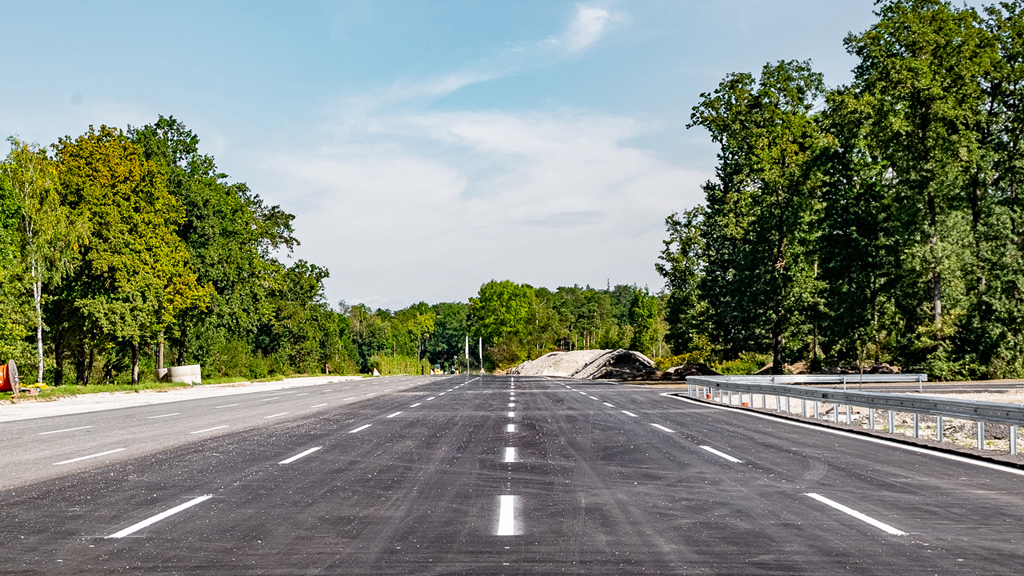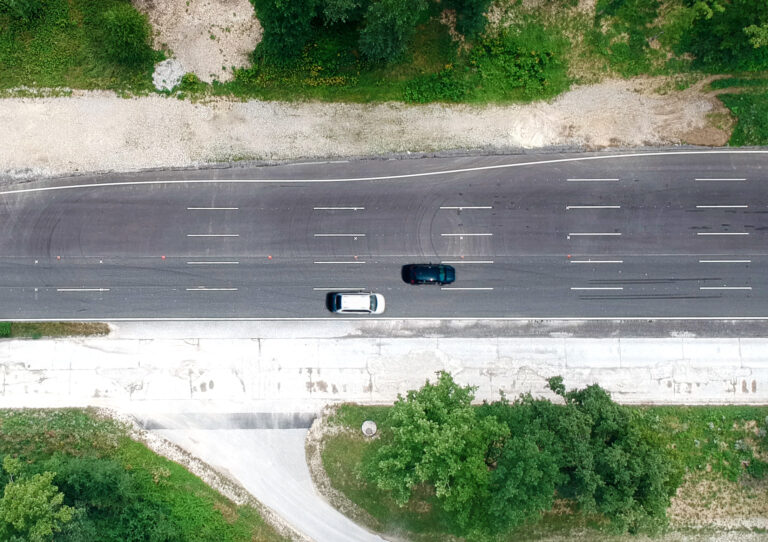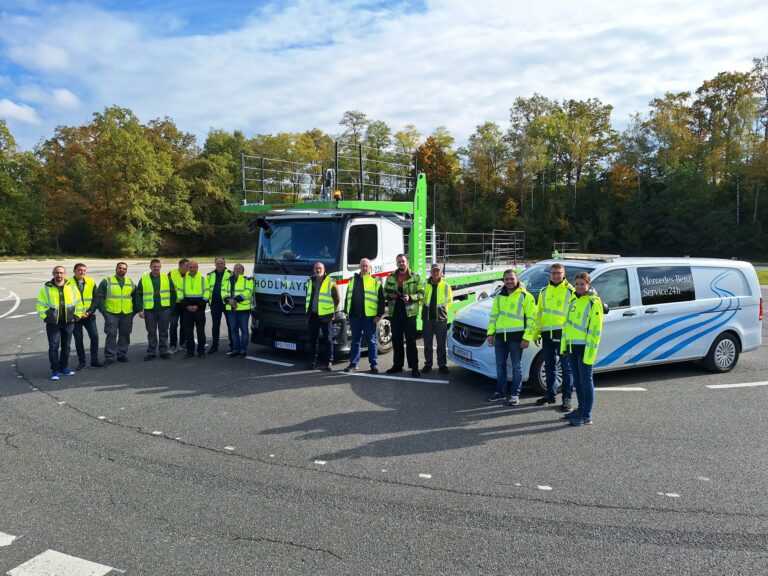RC model car reaches 205 km/h during speed tests on the proving ground in St. Valentin
Two model car builders are testing the limits of their RC model cars – reaching speeds of up to 205 km/h during a speed test at the Digitrans test center at the proving ground in St. Valentin.
At the proving ground where large and heavy vehicles, trucks, tractors and off-road machines are normally tested and made fit for automated freight transport, 1:7 scale “Limitless” model cars recently attempted to set new speed records.
While the “RC speedrun” scene is largely taking place in the USA and Israel, the RC pilots now want to prove with the speed tests on the proving ground in St. Valentin that fast RC cars are also built and driven in Austria.
The RC cars tested on the proving ground in St. Valentin
The RC vehicles themselves are roughly 80cm long, weigh 7kg, have an electrical output of over 10kW and are equipped with state-of-the-art telemetry and camera technology. For the speed tests, the company Radra RC.Racing specially made a paint job in the Digitrans design.
Technical details of RC model cars:
- Vehicle length: 740mm
- Vehicle weight: 6,9kg
- Motor: 8S brushless (34V)
- power: 10kW
- Batteries: 2 x 4S Lipo
- 0-100kmh: 2.3 sec
Proving Ground in St. Valentin ideal for speed tests
Testing limits has almost become a professional hobby for the two enthusiastic technicians and model builders Marc Eißele from Linz and Aleksander Savic from Gastein. “With around 1000m of the finest asphalt track, the proving ground in St. Valentin offers us the ideal terrain to test our RC model racers at full speed – over 200 km/h – during the speed tests.”
Marc Eißele, who himself has worked in the development and production of well-known car manufacturers is impressed by the test track in St. Valentin: “I have seen many proving grounds myself, but such a great straight track with such fine, clean asphalt is really unique.”

The 1000m long straight asphalt track – 450m of which are 6-lanes – on the proving ground in St. Valentin. © DigiTrans GmbH
Getting prepared for the speed test on the proving ground in St. Valentin
Before the speed test, the track was cleaned and smaller stones and dirt residues removed. “Even the slightest bump could doom the speed test to failure.
At these high speeds, the RC vehicle would immediately be torn off the track, lifted off by the airflow and seriously damaged. We want to avoid that as far as possible,” explains Marc Eißele shortly before the start of the speed test at the proving ground in St. Valentin.
The speed test of the RC model cars was accompanied by Flight Kinetic’s drone. The drone had to pick up a lot of speed in order to follow the vehicles.
RC- speed test with 205 km/h on the proving ground in St. Valentin at Digitrans
In several test trials, speeds of up to 205 km/h were finally achieved on the proving ground in St. Valentin. The two model builders are visibly satisfied with the speed tests.
However, due to a tire blowout, they were unable to beat the record of around 247 km/h that they had set for themselves. Nevertheless, the two are already working on being able to set even higher speeds in the future.
“At about 300 km/h also the technically and physically limit is reached,” says Marc Eißele. But also 205 km/h, is already a record-breaking speed. The Digitrans team and Managing Director Eva Tatschl-Unterbeger were also impressed by the racing cars on the proving ground.
Info about the track section and the speed test on the proving ground in St. Valentin:
Track lengths: 450 m / 600 m / 940m
Highest measured speed: 205 km/h
Acceleration: 0-100kmh: 2.9 sec
You might also be interested in
Further Insights

Automotive Testing Technology International Awards 2022 – Proving Ground of the Year 2022 – Digitrans shortlisted
The Digitrans Test Center for Automated Driving, with its innovative expansions on the proving ground in St. Valentin, has managed to be shortlisted for the award “proving Ground of the Year 2022”, alongside numerous other exciting test sites and test tracks from around the world.

Tests of driver assistance systems at the Digitrans Test Center on the proving ground in St. Valentin
On August 9, application-based practical tests with driver assistance systems were carried out at the Digitrans Test Center in St. Valentin on behalf of AustriaTech in cooperation with Graz University of Technology and Factum as part of the research project “Road Safety and Automated Mobility M7174”.

Truck driver assistance systems – ADAS training sessions at the Digitrans test center for autonomous driving
At the ADAS training session on the proving ground in St. Valentin, truck driving instructors from Hödlmayr were able to learn more about truck driver assistance systems and test them in practice in the safe environment of a proving ground.
